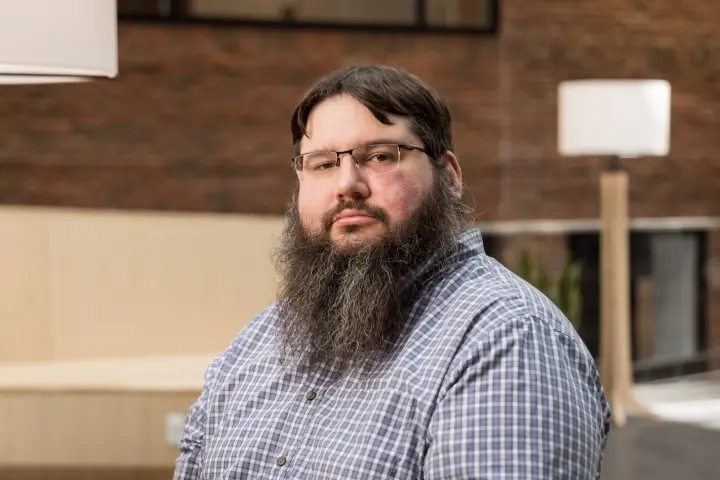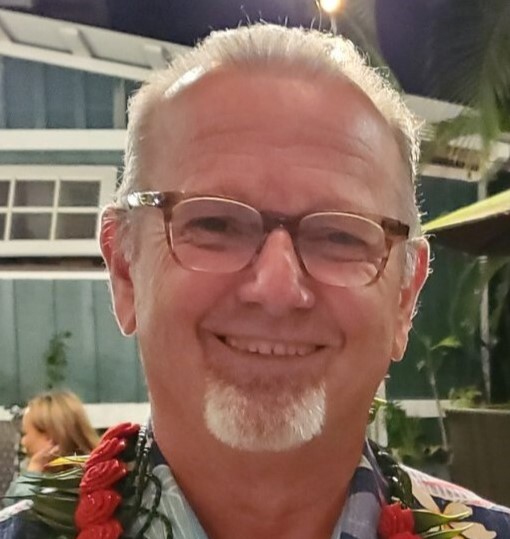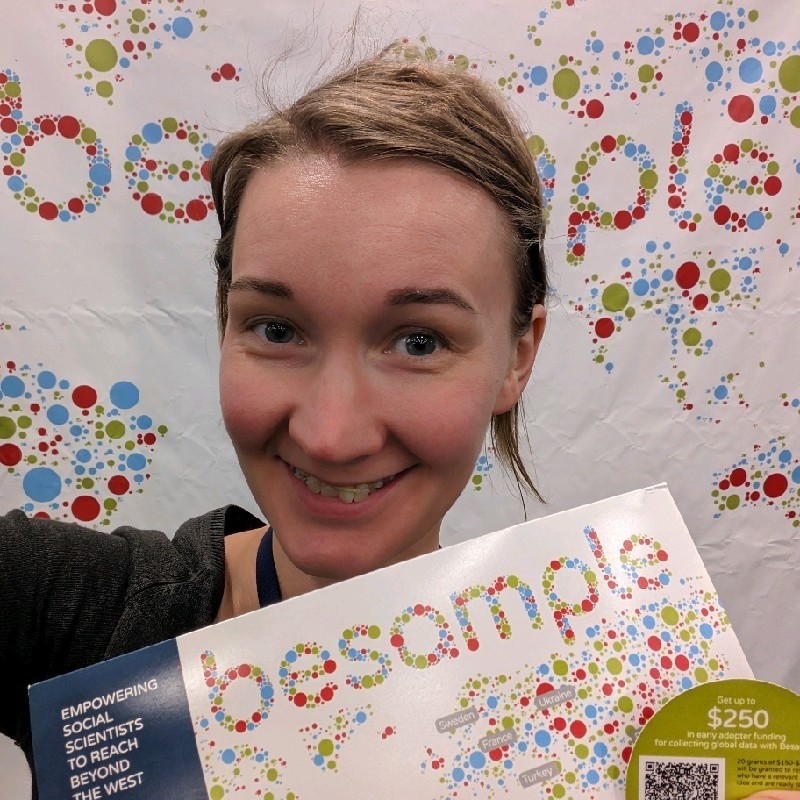Our 3rd annual Innovations in Online Research Conference took place on October 3, 2023
- Dr. Sean Westwood, Associate Professor in the Department of Government at Dartmouth College and Director of the Polarization Research Lab, delivered the keynote address demonstrating his findings that support for politically-motivated violence is quite low but can appear inflated due to respondent disengagement and ambiguous survey questions
- On the Data Quality panel, experts in the field discussed various methods used to protect and enhance data quality
- Researchers explored the complexity of conducting dyadic, longitudinal, clinical, and qualitative studies with online samples in small breakout room discussions
- Attendees had the opportunity to meet high-quality ConnectTM participants and learn from their firsthand experiences completing tasks on the ConnectTM platform
- We took a deep dive into the different CloudResearch® platforms to learn more about ConnectTM, Prime Panels, Sentry®, and Managed Research services
- 2023 CloudResearch grant recipients shared their inspiring research plans and 2022 recipient updated us with their results
- We learned how to collect non-Western participants online with Besample, a new platform for behavioral research that specializes in recruiting participants from non-Western countries
The presentations this year were particularly engaging and interesting. Thank you to all the speakers and attendees for helping to make 2023 IIOR a huge success!
Quick Navigation:
Keynote Speaker: Dr. Sean Westwood
Dr. Sean Westwood is an Associate Professor in the Department of Government at Dartmouth College and Director of the Polarization Research Lab. Dr. Westwood’s main area of research is political behavior and public opinion, specifically focusing on how partisanship and information from political elites affect the behavior of citizens.

From Perception to Reality: Measuring Rare Attitudes in U.S. Political Violence
Political scientists, pundits, and citizens worry that America is entering a new period of violent partisan conflict. Provocative survey data show that a large share of Americans (between 8% and 40%) support politically motivated violence. Yet, despite media attention, political violence is rare, amounting to a little more than 1% of violent hate crimes in the United States.
In this insightful keynote address, Dr. Sean Westwood presents data from four extensive online survey experiments involving nearly 5,000 participants to reconcile these seemingly conflicting facts. As Dr. Westwood demonstrates, respondent disengagement, random responding, and ambiguous survey questions drastically overinflate the support for partisan violence. In fact, when using proper data quality measures, support for partisan violence is vanishingly low, and nearly all respondents support criminally charging suspects who commit acts of political violence. These findings suggest that although recent acts of political violence dominate the news, they do not portend a new era of violent conflict.
Data Quality Panel
Our expert panel including Dr. Sara Jaeger, Dr. Catherine Marshall, Dr. Leib Litman, and Dr. Aaron Moss dive into the intricacies of data quality in this interactive session. The panel discusses pivotal questions such as measurement methods for data quality, the comparison of attention checks vs digital fingerprinting, and more.
Participant Panel
Experience first-hand insights from participants in this panel discussion. We bring together 3 high-quality participants from the ConnectTM platform to voice their experiences, likes, and dislikes about using the platform and participating in studies. Caitlin Harrington, a staff writer at WIRED who covers the intersection of technology, corporate practices, and workers’ rights, with a keen focus on the societal implications of tech giants’ business decisions, moderates the panel.

Caitlin Harrington
Navigating Complex Sampling
Unravel the complexities of research design in our ‘Navigating Research Complexity’ session. The session commences with a 30-minute overview, followed by an hour-long breakout with a choice between three sessions: Dyadic studies, Longitudinal + Clinical studies, or Qualitative studies. Each session delves into examples, challenges, and best practices. Attendees then regroup for a Q&A, promoting the exchange of insights and collaborative problem-solving.
Dyadic Studies: This breakout session focuses on collecting dyadic or group data online in diverse contexts including menopausal women and their partners (Yating Yang), how to study conversations online (Michael Yeomans), the use of the Online Coalition Game for studying politics (Anabela Cantiani), and the use of ChatPlat for studying political polarization (Trevor Spelman)
Longitudinal Studies and Clinical Samples: This breakout session explores how to sample patients for longitudinal health behavior studies (Dr. Laura Downey), using a prospective cohort design to study shifts in risk perception regarding COVID-19 (Soyeon Choi), collecting online data for eating disorders research (Dr. Sarah Weinberger-Litman), and using audio recordings to study suicidality among veterans (Dr. Yosef Sokol).
Qualitative Research Online: In this breakout session, the method of accessing rare patient populations online, specifically chronic refractory migraine sufferers is discussed (Dr. Zohn Rosen). The subsequent talk addresses the connection between medical mistrust and lung cancer screening inequities in the US is explored through online interviews and focus groups with a diverse audience (Dr. Jennifer Richmond). The final talk highlights challenges posed by AI tools, such as ChatGPT, in online qualitative research and the importance of clear guidelines to prevent unauthorized AI usage (Dr. Leib Litman).
CloudResearch Deep Dive
The ‘CloudResearch Deep Dive’ offers a comprehensive session designed to help you gain a deeper understanding of our platforms. The session kicks off with a 30-minute demo of our flagship services – ConnectTM, Prime Panels, and Managed Research, offering a glimpse into their advanced capabilities. Following the demo, we open the floor for a 30-minute interactive Q&A session, providing attendees with the opportunity to dive deeper into the specifics of these services.
Grant Recipients
This session provides an opportunity to gain insights from the journeys of successful grantees, understanding their challenges, strategies, and their innovative research work. Learn about and get inspired for your own future grant applications.
2023 Grant Recipients

Brad Huang: Unlocking Creativity with Artificial Intelligence: Experimental Evidence from ChatGPT on the Goldilocks (Curvilinear) Effect of Human–AI Collaboration
2022 Grant Recipients
Besample Demo
Sampling Beyond WEIRD: Attentiveness, Honesty, Reliability, and Overall Quality in Non-Western Research Participants Besample a new platform for behavioral research in non-WEIRD populations, shares results of internal quality assessment of 250,000 research participants from Africa, Asia, Latin America, and Eastern Europe, along with tips on collecting data in non-Western countries and a special small grant program for researchers willing to go beyond WEIRD.
Speakers
Sponsor

Meet our sponsor Besample: a brand-new data collection platform for researching beyond the West. Recall that classic estimation that 96% of all psychology findings were based on WEIRD research populations (Henrich et al., 2010)? Besample was created to change this by giving scholars quick, easy, and affordable online access to quality research participants from 42 diverse countries, such as Uzbekistan, Kenya, Colombia, or Bangladesh. Don’t miss out on grant opportunities! Besample supports scholars in their effort to go beyond WEIRD. Are you a graduate student, postdoc, or young faculty? Apply for a grant of up to $250 to collect your first international dataset.


























